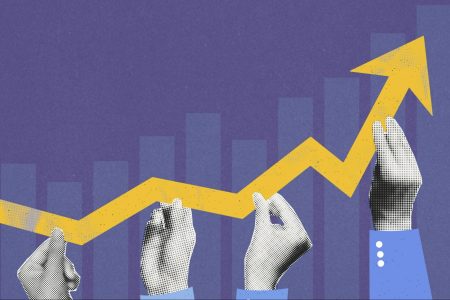It’s no secret that the world’s business and policymaking establishment adopted carbon penalties and offsets as a climate-change mitigation approach because it’s a market-driven solution that doesn’t threaten to bring economic productivity to a standstill. In the U.S. — even amid rancorous partisan debate about climate change — a wide majority supports the country’s effort to adopt carbon-neutral policies.
As a result, carbon data today sits at the center of current and future policymaking for nations, corporations and NGOs worldwide. Even for many individuals, reducing one’s carbon footprint — through a local utility, a favorite airline, a neighborhood arborist — has become a priority.
But carbon has a problem. As a metric for success and progress — certainly in the short- to medium-term — it’s seriously flawed. Those flaws have important implications for those who aim to take direct action, and especially for those who hope to redirect the forces of capitalism in the service of a secure climate future.
Don’t get me wrong. Carbon measurement and abatement are critical tools in the world’s arsenal in the fight against climate change. But carbon data is also vulnerable to manipulation and often flat-out inaccurate. As such it leaves open the possibility that the climate-aware decisions we make today — including where we choose to invest — may miss their mark.
Here are six critical areas in which carbon data falls short:
1. Companies self-report incorrect data: We all remember Volkswagen’s emissions scandal in 2015, when the world’s largest car manufacturer was found to have installed software in its diesel vehicles that manipulated emissions tests. But even absent outright fraud like VW’s, many companies’ self-reported carbon data simply gets the basics wrong. In one study, almost a third of companies in a range of industries mismatched data in at least one category of emissions when they were sent to CDP, which runs a global disclosure system for companies, investors and states.
“ Even if the world were to become net zero today, it would take at least 30 years for global temperatures to drop. ”
2. Carbon data at the company level Is flawed and plagued with quality issues: Collecting carbon data carries the assumption that companies affect the environment, but the truth is that climate change is impacting companies in the long run.
Even if the world were to become net zero today, it would take at least 30 years for global temperatures to drop. In the meantime, according to an annual survey, global warming has an operational impact stemming from climate-related disasters; creates a risk of scarcity and higher cost of resources; leads to regulatory and political uncertainty; increases insurance costs and denials, and threatens potential reputational damage.
3. Companies under-report Scope 3 emissions data: Many companies approach emissions reporting — whether measurement or estimation — as an accounting exercise, rather than a scientific or risk management endeavor.
Here’s an example. As the world economy came to a standstill during the COVID pandemic in 2020, Scope 3 data reported by car companies barely decreased compared with 2019. It’s an unbelievable data point because most people generally stayed home that year. But automakers nonetheless reported it because their data relies on an amortization model — which starts with vehicle-lifespan assumptions, then calculates the carbon their cars will produce during that lifespan, and then divides that figure by the total number of years — regardless of whether the vehicles are driven. (Scope 3, or indirect, emissions comprise carbon emitted not by the company itself but by suppliers up and down its value chain, and by the end users of its products.)
Further, in a case study of the technology sector, companies omitted half of the total emissions stemming from Scope 3. That’s because carbon accounting and reporting practices aren’t systematic and comparable.
4. Companies’ targets don’t often match their own data: Companies’ targets for carbon emissions contradict their own data. A study in the Academy of Management shows that companies regularly alter target parameters, making it easier for them to meet those targets.
5. Country-level carbon data is generally underestimated: Research — and high-profile failures — have shown that countries’ carbon data isn’t much better than companies’. Known failures in recent history range from inaccurate reporting of forest-fire emissions by Indonesia (the resulting haze that overwhelmed neighboring Malaysia exposed the truth) to the discovery of fraudulent data designed to manipulate the European Union Emissions Trading Scheme (EU ETS).
A review of 196 country reports to the United Nations found underreported greenhouse gasses of 8.5 billion to 13.3 billion tons a year, according to the Global Carbon Project. At the low end, the gap is larger than the yearly emissions of the U.S., and at the high end, it approaches the emissions of China. “The persistent, unexplained variability in the carbon … imbalance limits our ability to verify reported emissions,” the report concluded.
6. Third-party carbon data providers aren’t much more accurate: Commercial data providers publish widespread inconsistencies in every emissions category across sectors, according to this study. The biggest gaps are in indirect emissions. This flawed information is then used as the basis for companies’ transition risk, and environmental, social and governance (ESG) ratings, as well as governments’ ability to address global warming.
In addition, data on estimated emissions provide little information to identify green companies in brown, or high-carbon-emitting, sectors, says a study by Research Affiliates LLC and the University of Augsburg (Germany). As a result, they are calling for mandatory and audited carbon emissions disclosures.
“ Advocates for climate-aware investing are losing ground in the battle for investors’ hearts and minds.”
Improving the situation poses a challenge to all concerned. Part of the answer lies in seeing climate transition through a wider lens. This includes bringing in other measures of transition-readiness — over and alongside carbon data. Such measures require us to start by thinking about the impact climate change has on companies (rather than the other way around, as we often do today).
This forces us to account for the real role that technology innovation, regulatory shifts, and global energy supply and demand play in the effective climate transition of companies and nations — because all of these factors provide strong signals about a company’s climate posture.
The stakes are high. At a time when advocates for climate-aware investing are losing ground in the battle for investors’ hearts and minds, carbon data’s weaknesses pose a guilt-by-association risk for all concerned, especially those who seek to marshall the power of the capital markets in the service of climate-change mitigation.
Pooja Khosla, Ph.D., is chief innovation officer at Boulder, Colo.-based Entelligent.
Plus: What Hawaii’s deadly wildfire teaches all American towns about climate risks
More: Modern-day Oppenheimers see the future of nuclear energy — and it’s mobile
Read the full article here









